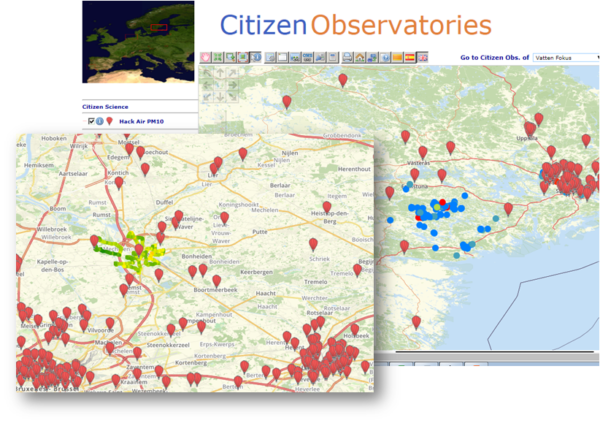Why is it relevant?
Applying open data policies to Citizen Observatories increases the impact of the data by preventing ‘data silos’ (storage of different data in different places) and thereby duplication of efforts. Adopting data standards lowers the technical barriers and opens new possibilities for exploiting the data by combining them with other themes and across locations.
How can this be achieved?
There are a range of tools and guidelines that can help your Citizen Observatory apply open data policies and data standards.
Useful Resources
TOOL: The Open Data Toolkit is designed to help governments and open data enthusiasts understand the basic concepts of open data, how to plan and implement an open government data programme and some tricks on how to approach a dataset.
WEBSITE: The World Bank page on Starting an Open Data Initiative contains useful information and tools for those looking to take their first steps in an open data initiative.
CHECKLIST: The Open Data Institute page on How to write a good open data policy details the key steps to take in order to understand and develop strong open data practice.
REPORT: The Citizen Science Interoperability Experiment engineering report focuses on the findings of the first phase of the WeObserve and OGC Citizen Science Interoperability Experiment.
REPORT: The report Recommendations on FAIR metrics for EOSC proposes a set of metrics for FAIR data in EOSC to be extensively tested.
BOOK CHAPTER: “A Conceptual Model for Participants and Activities in Citizen Science Projects” in the book “The Science of Citizen Science” provides a conceptual model with which projects and data can be described in a standardised manner.
POLICY: UNESCO is working towards building global consensus on open science via the development of a UNESCO Recommendation on Open Science, which includes Open Data policies.
CoP: The Citizen Science & Open Science Community of Practice, under the umbrella of the Citizen Science Global Partnership, is dedicated to stimulating exchange and cooperation between practitioners from the fields of citizen science and open science
PROJECT REPORT: Engagement activities and their impacts on policy development includes FAO slides from one of the GROW MOOCs covering multi-stakeholder soil governance models.
You may also be interested in:
I want to achieve impact with the Citizen Observatory results…
…by communicating the Citizen Observatory results effectively
This work by parties of the WeObserve consortium is licensed under a Creative Commons Attribution-ShareAlike 4.0 International License. ![]()

